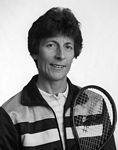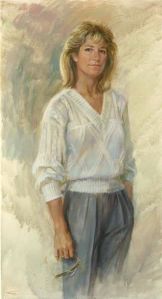As Sepp Blatter rubs his hands and prepares to be re-elected as President of Fifa – unopposed – some people are asking who exactly is the head of this troubled organistion, this ducker and diver, this slipperiest of eels? Joseph S Blatter, otherwise known as Sepp is something of a mystery. Many people know little about the man – so we thought we would put this right. Here are 30 facts and quotes about and from Sepp Blatter for you to take in and digest. Just don’t do it on an empty stomach.
1. Sepp was born Joseph S Blatter on 10 March 1936 in Visp, Switzerlad.
2. He was never a professional footballer or involved in the management of a professional team.
3. He was elected as President of FIFA (Fédération Internationale de Football Association) on 8 June 1998 – the eighth person to get the job.
4. Although not professionally involved with football until later in his working life he was the Head of Public Relations of the Valaisan Tourist Board in Switzerland.
5. He showed an interest in other sports, however, spending time as the General Secretary of the Swiss Ice Hockey Federation.
6. He was also the elected President of WSoFoF (World Society of Friends of Suspenders). This was a not so secret organisation dedicated to stopping women wearing pantyhose and demanding a restoration of the more traditional suspenders.
7. He once said: “Fifa cannot sit by and see greed rule the football world. Nor shall we.”
8. He helped to organise the Olympic Games of ’72 and ’76 as well as being the Director of Sports Timing and Relations of Longines, the Swiss luxury watchmaker currently owned by Swatch.
9. He once said: “A financial sanction is not an adequate measure. You can always find someone with enough money to pay (the fine).”
10. He became Technical Director of FIFA in 1975. He then became General Secretary in 1981, a post he held for 17 years.
11. In 1998 he became President. This was among much controversy, concerning rumors of backroom dealings and financial irregularities. Surely not.
12. Farra Ado, then the vice-President of the Confederation of African Football claimed to have been offered to $100,000 to vote for him in the ’88 election. This claim was made in the British press and is a matter of public record.
13. Sepp Blatter once said:” There is a movement in club football, which I don’t necessarily consider a prime example of solidarity, because it leads us to conclude the rich are getting richer and they are using everything in the market to create an exodus from Africa.”
14. He was re-elected in 2002.
15. In 2004 he surprise women footballers by suggesting that they really ought to “wear tighter shorts and low cut shirts… to create a more female aesthetic” in order to gain more male followers.
16. In 2007 he was re-elected for another four years. Only 66 of FIFA’s 207 members nominated him. In 2009 he stood again and was elected again.
17. Michel Zen-Ruffinen collected a dossier claiming that FIFA had lost up to $100m under Blatter. This was handed to Swiss authorities but they cleared Blatter of any wrong doing. FIFA paid all the costs.
18. Blatter removed Zen-Ruffinen (his Deputy) from office just before the 2002 World Cup.
19. Blatter once said: “The source of wealth is from individuals with little or no history of interest in the game, who have happened upon football as a means of serving some hidden agenda. “
20. Blatter personally intervened during the 2006 World Cup when referee Valentin Ivanov issued 16 yellow and 4 red cards during the match between the Netherlands and Portugal. He said that Ivanov should have given himself a yellow card.
21. Blatter promised to apologise to Ivanov. He never did. Ivanov was removed from further duties.
Blatter laughed at the Irish request to be the 33rd entrant at the 2010 World Cup because of the infamous Thierry Henry incident. Publicly laughed. He is popular in Ireland.
22. Blatter has systematically refused goal-line technology or video replays to inform decisions made by referees. Most other sports have this technology and use it.
23. Blatter said at the time: “It is obvious that after the experiences so far at this World Cup it would be a nonsense not to re-open the file on goal-line technology. […] We will come out with a new model in November on how to improve high level referees. […] I cannot disclose more of what we are doing but something has to be changed.
24. There are no plans to introduce goal-line technology for the 2014 tournament.
25. There has been widespread reporting that Blatter cut a deal with UEFA head Platini to make sure that Europe received the 2018 cup. The tournament went to Russia.
26. He once said: “What I am most proud of is the legacy of hope that FIFA and football leaves around the world. It makes all of the efforts and energy I pour into this job worth it.”
27. Blatter is understood to have made direct reference to the evils of the media in a speech to the executive immediately before they voted for 2018 and 2022.
28. He once said: “Whether associations, teams or players at each and every level, we all have a duty to ensure that our conduct does not lead to anybody being marginalized. Football has to set an example for others to follow.”
29. Blatter has been awarded over thirty awards, including a knighthood from from the Sultanate of Pahang and the Global Award for Peace, awarded by the International Amateur Athletic Association
30. He once said: “I am sure there will be fair play this year.” This is not a 2011 quote.












